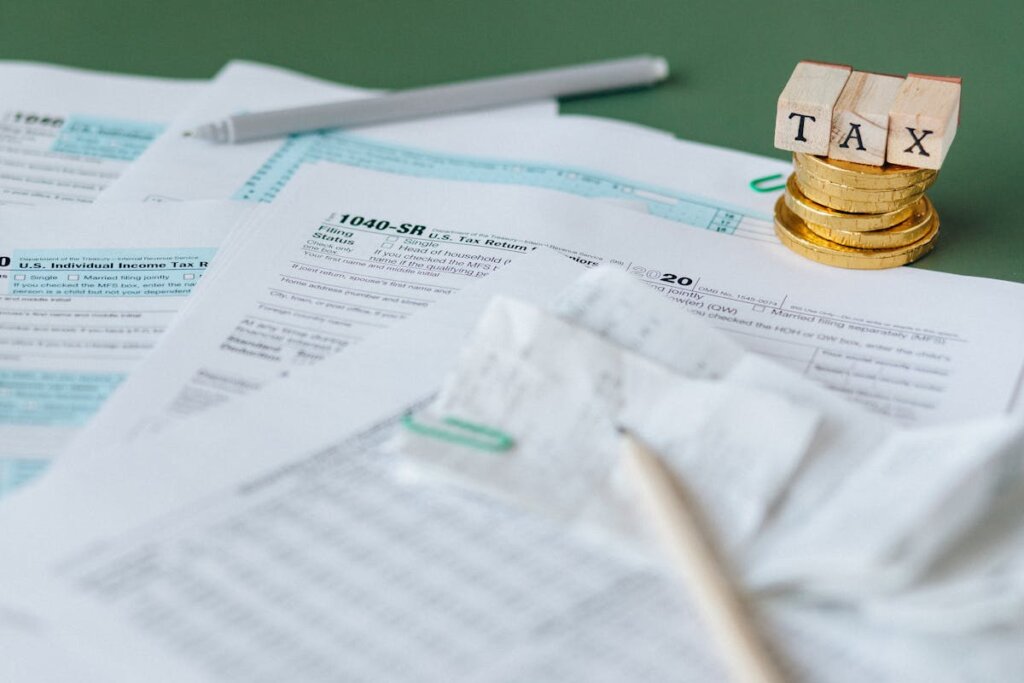
Learning the tax implications of selling your CT house is essential before entering a cash sale. Many Connecticut homeowners choose a cash buyer because it speeds up the process, eliminates repairs, and removes financing delays. Even though a cash sale is simpler than a traditional listing, you still need to understand how state and federal taxes apply to your profits.
The tax implications of selling your CT house can vary depending on how long you lived in the home, how much equity you have, and whether the property is your primary residence. When you understand these details, you can prepare for a smoother closing and avoid surprises at tax time.
Federal Capital Gains and How They Affect the Tax Implications of Selling Your CT House
One of the largest tax implications of selling your CT house involves capital gains tax. This is the tax applied to the profit you make when selling a home. Many homeowners qualify for a significant exclusion that reduces or even eliminates this tax.
If the home has been your primary residence for at least two of the last five years, you may exclude up to two hundred fifty thousand dollars of profit if you file as an individual or five hundred thousand dollars if you file jointly. This exclusion dramatically reduces the tax implications of selling your CT house under most normal circumstances.
When you do not meet the primary residence requirement, or if your profit exceeds the eligible exclusion, you may owe capital gains tax based on your income bracket. The IRS calculates this using the difference between your sale price and your adjusted cost basis.
Your adjusted basis includes your original purchase price plus the cost of any major improvements you made over the years. Understanding your adjusted basis helps you calculate the tax implications of selling your CT house more accurately.
Connecticut Conveyance Tax and Its Role in the Tax Implications of Selling Your CT House
Connecticut charges a conveyance tax on almost every home sale, including cash sales. This tax applies regardless of whether you profit or break even, making it one of the unavoidable tax implications of selling your CT house.
The Connecticut conveyance tax includes a state portion and a municipal portion. The state rate depends on your sale price range, while your town adds its own rate on top. Since cash sales close faster, sellers should prepare early by understanding how much they must pay in conveyance tax so the final closing balance is clear.
The exact amount can vary depending on the county and the value of your property. While this tax cannot be avoided, knowing the expected amount helps you plan ahead and manage the financial side of selling your home smoothly. This knowledge ensures that the tax implications of selling your CT house do not cause last minute stress at closing.
Property Taxes and Year End Adjustments When Selling Your CT House
Another factor that influences the tax implications of selling your CT house is the prorating of property taxes. Connecticut property taxes are paid to local municipalities and are often among the highest in the country.
When you close on the sale, you must pay your share of property taxes for the portion of the year you owned the home. This adjustment is part of the tax implications of selling your CT house because it affects your final net proceeds.
Even though a cash buyer accelerates the timeline, the prorated tax requirement remains the same in every Connecticut closing. Your attorney or title company will calculate this amount and deduct it from your sale proceeds. This ensures that the buyer and seller each pay their fair share. Understanding this helps you avoid confusion about the final payout during your cash sale.
How Documentation and Records Affect the Tax Implications of Selling Your CT House
Keeping accurate records plays a surprisingly large role in the tax implications of selling your CT house. When you can prove the cost of improvements, closing fees from your purchase, and any major home upgrades, you increase your adjusted basis.
A higher adjusted basis lowers your taxable profit if you owe capital gains tax. Many homeowners forget to save receipts for renovations, but these records are valuable when determining the tax implications of selling your CT house.
If you work with a tax professional, providing thorough documentation helps them calculate your obligations correctly. This reduces the chance of overpaying or underpaying, both of which can create problems later.
Unique Situations That Change the Tax Implications of Selling Your CT House
Some situations modify the tax implications of selling your CT house. For example, if the home was used as a rental property at any point, depreciation rules apply. Depreciation must be recaptured when selling, which increases taxable income. This often surprises sellers who do not realize that rental property rules remain in place even if they return the home to personal use.
Another situation involves inherited property. If you inherit a home in Connecticut and then sell it for cash, your tax implications differ because the cost basis resets at the property’s fair market value at the time of inheritance. This often reduces taxable gains significantly. Understanding these scenarios helps you prepare for the specific tax implications of selling your CT house under your unique circumstances.
Why Cash Sales Simplify the Tax Implications of Selling Your CT House
A major benefit of choosing a cash buyer like Neighbor Joe is the simplicity of the transaction. Cash sales close quickly, eliminate lender involvement, and reduce complicated contingencies. While this does not remove federal or state tax requirements, it does streamline the process.
With fewer moving parts, you can clearly evaluate the tax implications of selling your CT house without worrying about delays that shift the closing date, prorated tax amounts, or unexpected repairs that alter your financial calculations.
Because cash buyers purchase homes as they are, you do not need to invest in improvements or renovations. This prevents new financial variables from affecting your final gain. This stability allows you to plan better for any federal or state taxes associated with the sale.
Working With Professionals to Understand the Tax Implications of Selling Your CT House
While a cash sale is straightforward, tax matters can still be complex. Speaking with a tax advisor is one of the most effective ways to understand the full tax implications of selling your CT house. They can explain how capital gains exclusions apply to your situation, whether depreciation recapture affects you, and which deductions may lower your taxable profit.
Connecting with a knowledgeable Connecticut professional creates clarity and ensures that the tax implications of selling your CT house are handled correctly.
Real estate attorneys also play a key role by calculating prorated taxes, preparing conveyance tax paperwork, and handling closing details. These steps help ensure that every financial requirement is met at the right time.
Planning Ahead Helps You Manage the Tax Implications of Selling Your CT House
When you prepare early, the tax implications of selling your CT house become predictable and manageable. By understanding capital gains rules, Connecticut conveyance tax requirements, property tax prorations, and documentation needs, you start the cash sale process with confidence.
A cash sale brings speed and convenience, but understanding your tax responsibilities ensures that you keep as much of your profit as possible. With the right preparation and support, selling your home for cash becomes a smooth and financially clear experience.

